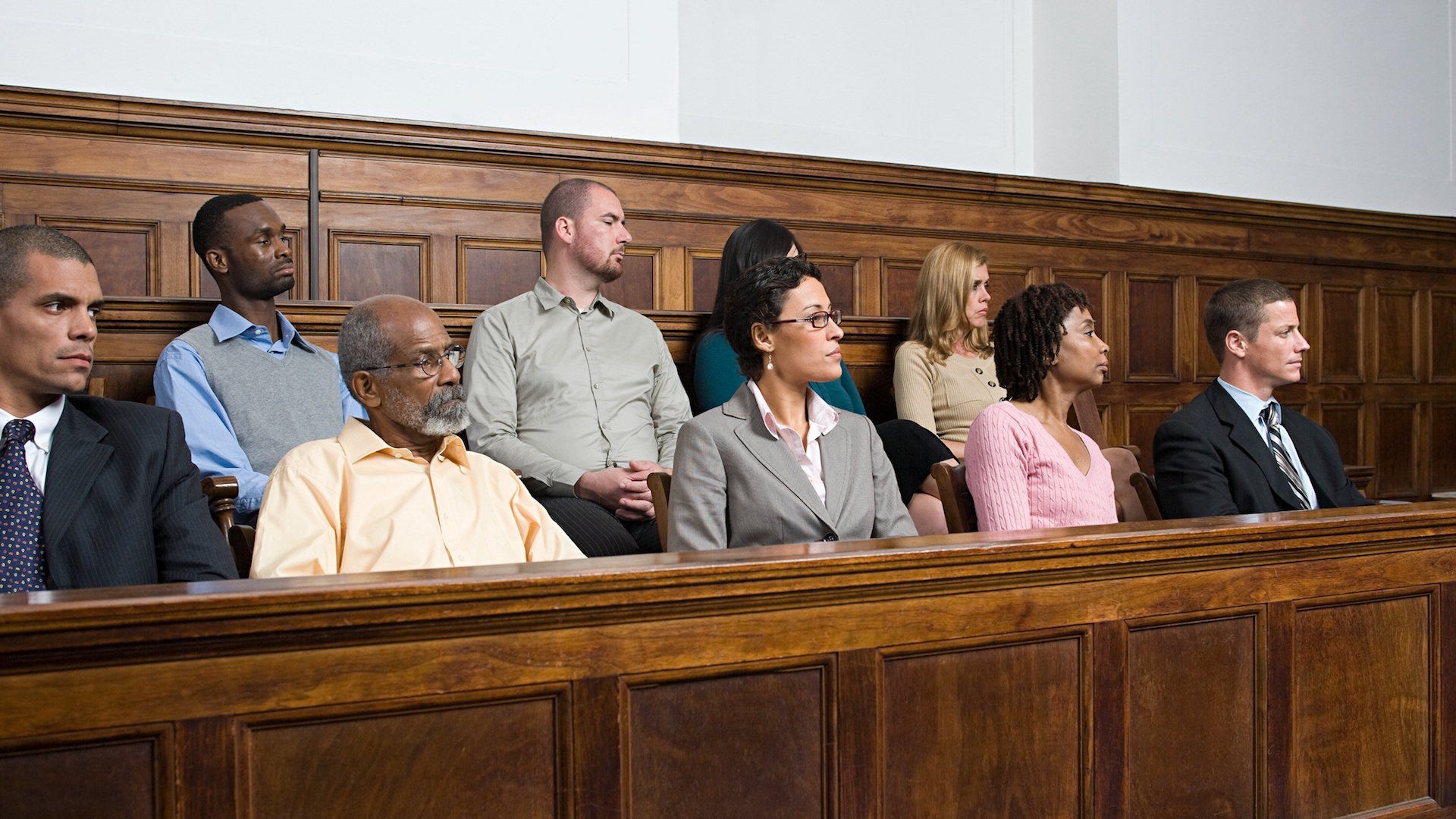
What Is A Criminal Defense Trial Like?
If you’ve been charged with a crime and your case ends up going to trial, it can be a very overwhelming and sometimes confusing experience. A criminal defense trial is a very serious matter, and knowing what to expect can help ease some of your stress beforehand.
Criminal Defense Trial Process
All criminal defense trials follow the same basic five-step process, which includes:
- Jury selection
- Opening statements
- Testimony and cross-examination
- Closing arguments
- Jury deliberation and verdict
It’s important to remember that either the prosecution and/or defense (your lawyer) can offer to “cut a deal” at any point in the process prior to the jury reaching a verdict. If that happens, your criminal defense trial will immediately stop and the conditions of whatever agreement the prosecution and defense have negotiated will take effect.
Jury Selection
The first big step in any criminal defense trial is jury selection. During this process, the judge, prosecutor, and your defense attorney will take turns asking a group of randomly selected people questions about their lives and what they know (if anything) about your case.
Based on the answers potential jurors provide, the prosecution and defense will come to an agreement on twelve people (along with handful of alternates in case someone gets sick or has an emergency) to be the final jurors that will listen to the evidence presented and decide whether you are found innocent or guilty.
Opening Statements
Your criminal defense trial will officially start with a lawyer from each side giving a statement about the case. Generally speaking, a lawyer for the prosecution goes first, and your defense attorney will go after.
No witnesses testify at this stage, and no physical evidence is presented.
While all opening statements are different, you can expect that:
The prosecutor will present the facts of the case, from the government’s perspective, and walk the jury through what the government will try to prove — what the defendant did, how, and why.
The defense will give the jury its own interpretation of the facts, and set the stage for rebutting key government evidence and presenting any legal defenses to the crime(s) charged.
Ready To Speak To An Attorney?
Call us now at (707) 540-2356
Testimony And Cross-Examination
Witness testimony and cross-examination is the longest and most crucial part of your criminal defense trial. This is the stage where both the prosecution and defense will call witnesses to the stand to testify about what they know in relation the crime or crimes you’ve been charged with.
Regardless of which side the witness has been called from, their is a clearly defined testimony procedure that goes like this:
- The witness is called to the stand and is “sworn in,” taking an oath to tell the truth. If they lie on the stand, they can be charged with perjury, which is a crime.
- The side who called the witness to the stand questions the witness through “direct” examination, eliciting information from the witness through question-and-answer, to strengthen that side’s position in the case.
- After direct examination, the opposing side has an opportunity to question the witness through “cross-examination” – attempting to poke holes in the witness’s story, attack their credibility, or otherwise discredit the witness and his or her testimony.
- After cross-examination, the side that originally called the witness has a second opportunity to question him or her, through “re-direct examination,” and attempt to remedy any damaging effects of cross-examination.
It sounds complicated, but what it really comes down to is the prosecution and defense taking turns asking witnesses questions in an effort to help prove or disprove each side’s argument.
Closing Arguments
Closing arguments in your criminal defense trial are very similar to the opening statements made at the start of the trial.
Both sides address the jury one last time and will typically summarize the evidence that’s been presented, and then make an argument for why the jury should or should not convict you of the crime or crimes you’ve been charged with.
Jury Deliberation And Verdict
Once closing arguments have finished, the judge presiding over your case will give the jury some instructions and then send them to begin “deliberation” which means all twelve jurors go into a locked room and talk about the case and try to decide if you are guilty or innocent based on the evidence and witness testimony presented during the trial.
During this stage of your criminal defense trial, the outcome of the case is entirely in the hands of the jury, and there’s nothing either side can do until they come back with verdict. Jury deliberation can last anywhere from a few hours to a few weeks.
Once the jury has decided on a verdict, they will inform the judge and everyone will be called back into the courtroom and the verdict will be read aloud.
Hiring A Criminal Defense Trial Attorney
If you’ve been charged with crime, regardless of if your case goes to trial or not, you should hire an experienced criminal defense attorney with trial experience.
Going to trial without an attorney is like jumping out of plane without a parachute–only one in a million people survive the fall. Without a criminal defense attorney to defend you, you’re chances of being found innocent are almost non-existent.
For more information, or to get help with your criminal defense, please contact us today.
REQUEST A FREE PHONE CONSULTATION
At Quinnan Law, we offer every client a free phone consultation to discuss their unique situation and determine how we can help. To arrange a consultation, please fill out the adjacent form or call us at: (707) 540-2356.
We provide representation in California State and Federal Courts. We accept most major credit cards for your convenience.
